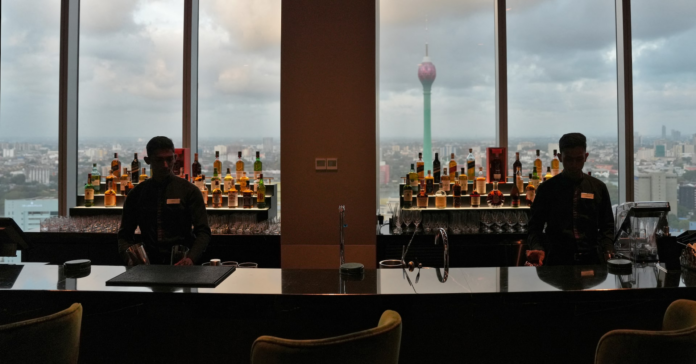Employees work at a bar in the City of Dreams, an integrated resort that includes Sri Lanka’s first high end casino, in Colombo, Sri Lanka, August 25, 2025. REUTERS/Thilina Kaluthotage Purchase Licensing Rights , opens new tab
Item 1 of 5 Employees work at a bar in the City of Dreams, an integrated resort that includes Sri Lanka’s first high end casino, in Colombo, Sri Lanka, August 25, 2025. REUTERS/Thilina Kaluthotage
Summary
Companies President Dissanayake opens $1.2 bln City of Dreams resort
Targets 3 mln tourist arrivals in 2025, up 50% from last year
Tourism revenue seen rising to $5 bln from $3.7 bln in 2024
New gambling law passed; critics flag weak oversight
India, China key markets; both enjoy visa-free entry
COLOMBO, Aug 26 (Reuters) – Tourists have long flocked to Sri Lanka for its pristine beaches, wildlife safaris and ancient Buddhist sites. Now, its first Marxist president is betting on casinos to attract high-rollers from India and China and usher in the next wave of foreign inflows.
The success of the casino strategy is crucial for President Anura Kumara Dissanayake, who completes one year in office next month and has vowed to improve the lives of ordinary Sri Lankans after the devastating economic collapse of 2022 and 2023.
Sign up here.
Sri Lanka had a handful of small casinos but earlier this month, Dissanayake inaugurated a $1.2 billion City of Dreams casino complex in Colombo, a joint venture between John Keells Holdings (JKH.CM) , opens new tab and Macau-based Melco Resorts & Entertainment (MPEy.F) , opens new tab
The launch of South Asia’s first integrated resort was headlined by Bollywood heartthrob Hrithik Roshan, who danced to hit Hindi songs in front of a packed house.
Dissanayake has also got legislation passed in parliament to regulate gambling including in casinos, reflecting the importance he is placing on the industry.
The push is part of Sri Lanka’s aim to raise tourist arrivals by 50% to 3 million this year, potentially lifting revenues from the industry to $5 billion from $3.7 billion last year, the deputy tourism minister, Ruwan Ranasinghe, told Reuters.


